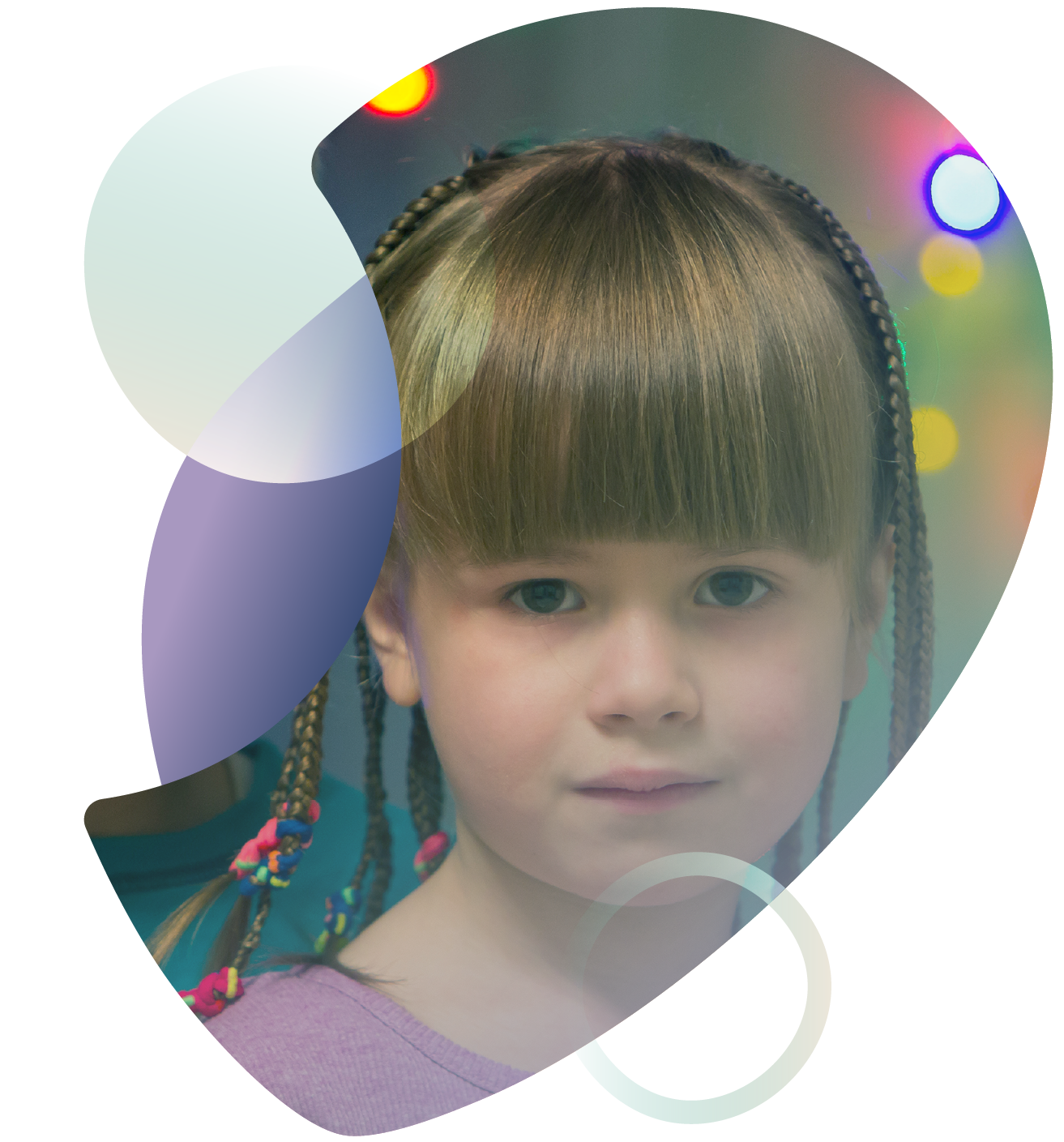Guide
Managing Mental Health During the Holidays
Finding Calm, Connection, & Compassion in a Season That Isn’t Easy for Everyone.

When Worry Becomes More Than Worry
The holidays are often portrayed as a time of joy, with warm gatherings, sparkling lights, and effortless connections. Yet for many, this season can feel overwhelming, lonely, or even painful. Social expectations, family dynamics, financial pressure, and unresolved grief can combine into a perfect storm of emotional strain. For those living with anxiety, depression, trauma, or obsessive-compulsive tendencies, the holidays can intensify symptoms and blur the line between celebration and survival.
The truth is that mental health doesn’t pause for the holidays. In fact, it often needs more care, not less. Recognizing this isn’t a sign of weakness; it’s an act of strength and awareness. Just as our physical health can be affected by seasonal stress through fatigue, over-scheduling, or poor sleep, our emotional well-being can also fluctuate under the weight of expectations. The goal isn’t to avoid the season or force joy but to move through it with compassion, boundaries, and the right support.
This guide explores how various mental health conditions can be impacted during the holidays and offers guidance on how to care for yourself or someone you love during this time.
Adjustment, Loss, & Life Transitions
Change is a natural part of life, but even positive change can be stressful. The holidays have a way of magnifying transitions, whether it’s the first year after a divorce, a move to a new city, a change in employment, or the loss of a loved one. Traditions that once felt comforting may now feel hollow. Social gatherings can trigger grief or emphasize what has changed.
If you’re navigating adjustment or loss, it’s important to acknowledge what feels different. You don’t need to pretend everything is “normal.” Create new rituals that reflect your current reality rather than trying to replicate the past. Permit yourself to decline invitations that feel too painful, and instead spend the time doing something grounding, such as journaling, volunteering, or spending quiet time in nature.
It can also be helpful to share your feelings openly with trusted individuals. You might be surprised how many others are struggling with similar transitions but feel pressured to hide it. Compassion, both for yourself and others, can make space for healing amid the season’s noise.
Childhood Anxiety Disorder
Children often feel the energy and tension adults carry into the holidays. The excitement of the season can be overstimulating: bright lights, disrupted routines, crowded gatherings, and unfamiliar faces. For a child with anxiety, this sensory and social overload can lead to meltdowns, avoidance, or withdrawal.
Parents can support anxious children by maintaining as much structure as possible. Predictable routines, regular bedtimes, familiar foods, and downtime between activities help reduce uncertainty. Prepare children ahead of time for what to expect at gatherings, and create an “exit plan” if they become overwhelmed.
Above all, validate their emotions. Instead of dismissing worries with “There’s nothing to be scared of,” try saying, “I can see this feels hard for you. Let’s figure it out together.” That sense of being understood builds emotional safety and teaches healthy coping for life.
General Anxiety Disorder
For adults with Generalized Anxiety Disorder (GAD), the holidays can feel like a constant series of “what-ifs.” Will I disappoint someone? Did I spend too much? What if I’m unable to attend every event? Anxiety thrives in uncertainty, and the season’s constant decisions about travel, gifts, and schedules create fertile ground for worry.
Try setting clear boundaries with yourself and others. You are not responsible for everyone’s happiness. Decide which events or tasks are meaningful and let go of the rest. Practice grounding techniques, such as slow breathing, progressive muscle relaxation, or brief mindfulness breaks, before and after stressful interactions.
If finances are a trigger, plan a realistic budget early and stick to it. Remember that connection isn’t measured in dollars or decorations; it’s found in sincerity and presence. Sometimes the most peaceful holiday moments are the simplest ones.

Major Depressive Disorder
Depression can cast a long shadow over a season that celebrates joy. You may feel emotionally disconnected, unmotivated, or guilty for not “feeling festive.” The contrast between societal cheer and internal emptiness can intensify feelings of isolation or worthlessness.
Start by softening expectations. Depression often tells us that nothing will help, but small, manageable actions can make a difference. Light exposure, gentle physical activity, and consistent sleep patterns support mood regulation. Choose social contact that feels safe and supportive, not obligatory. If you can, share honestly with a trusted friend that you’re struggling. You may find they’re grateful for your openness.
If depressive symptoms deepen—such as hopelessness, loss of appetite, or thoughts of self-harm—it’s critical to reach out for professional help. Crisis lines, therapists, and walk-in mental health clinics are available even during the holidays. You don’t have to face this alone. Asking for help is a courageous act of self-preservation.
Obsessive-Compulsive Disorder (OCD)
OCD can become particularly difficult during the holidays when routines shift and new stressors emerge. Intrusive thoughts may increase under stress, and compulsive behaviors like checking, cleaning, or reassurance seeking can feel harder to manage amid chaos and travel.
The first step is recognizing that intrusive thoughts are symptoms, not reflections of who you are. The goal is not to eliminate them but to change how you respond to them. If possible, maintain your therapy schedule or online sessions during the holidays. Exposure and Response Prevention (ERP) techniques can be practiced in small ways, such as resisting one compulsion at a time.
Loved ones can help by avoiding reassurance or criticism. Instead, they can offer grounding reminders such as, “I know this feels hard, but you’ve handled these thoughts before.” Compassion paired with boundaries supports recovery far more than avoidance or control.
Post-Traumatic Stress Disorder (PTSD) in Adults
For those living with PTSD, the holidays can trigger sensory or emotional flashbacks tied to past trauma. Crowds, alcohol consumption, loud noises, or certain family dynamics may evoke memories of loss, abuse, or conflict. While others anticipate celebration, survivors may feel hyper-vigilant, irritable, or detached.
Awareness is key. Identify potential triggers ahead of time and plan coping strategies such as grounding exercises, exit options, or having a trusted person to text or call. Avoid environments that feel unsafe or unpredictable, even if others expect you to attend. Safety comes before social obligation.
Practice mindful pacing by balancing stimulation with rest, and set boundaries around alcohol or substances if they worsen symptoms. Remember that healing from trauma is not linear. Needing extra care during this time does not mean you are regressing; it means you are attuned to your own healing needs.
Post-Traumatic Stress Disorder (PTSD) in Children
Children with PTSD may react strongly to the unpredictability of the holidays. Even well-intentioned surprises or visitors can feel threatening if their nervous system associates unpredictability with danger. Nightmares, emotional outbursts, or physical complaints like stomachaches can signal distress.
Consistency and safety are the foundation of support. Prepare children for changes in routine with visual calendars or countdowns. Permit them to take breaks in a quiet space if they feel overwhelmed. Maintain regular sleep and meal times, as these routines reinforce stability.
If trauma reminders arise, avoid forcing engagement or minimizing their emotions. Gentle reassurance, validation, and connection with a trauma-informed therapist can help children rebuild a sense of control and security. Healing takes time, but it’s strengthened by patience and predictable love.

Social Anxiety Disorder (SAD)
Holiday gatherings can feel like minefields for those with Social Anxiety Disorder. Small talk, crowded rooms, and the perceived scrutiny of others can trigger intense discomfort. The pressure to appear cheerful or “on” can make social situations exhausting rather than joyful.
Preparation can reduce anxiety. Plan conversation starters in advance, bring a trusted friend for support, and set time limits for events. Remind yourself that most people are focused on themselves, not judging you. Practice self-compassion before and after social interactions, acknowledging your effort rather than striving for perfection.
If avoidance becomes your main coping strategy, consider therapy support, particularly Cognitive Behavioral Therapy (CBT) or exposure work. These approaches can help reframe anxious thoughts and gradually rebuild confidence in social settings.
Substance & Addiction Use
The holidays can be an especially vulnerable time for people in recovery or those struggling with substance use. Social events often revolve around alcohol, and stress, loneliness, or unresolved pain can fuel the urge to numb emotions. For some, family dynamics can be deeply triggering, especially if alcohol or drugs are part of that history.
If you’re in recovery, plan your season intentionally. Attend sober or low-risk gatherings, bring your own beverages, and have an accountability partner you can contact at any time. If you relapse, seek help immediately. Don’t wait until after the holidays to reconnect with support groups or treatment. Relapse is not failure; it’s information about what needs more care and structure.
For loved ones, avoid pressuring someone to “just have one” drink or downplaying their commitment to sobriety. Real support means respecting boundaries, not testing them.
How Behavioral Wellness Clinic Can Help
At Behavioral Wellness Clinic (BWC), we understand that the holidays can bring as much stress as joy. Our team of psychologists, therapists, and wellness professionals provides evidence-based, compassionate care tailored to the challenges this season brings. Whether you’re managing anxiety, depression, OCD, trauma, or addiction, you deserve to feel supported—not just during the holidays, but throughout your healing journey.
BWC offers:
- Individual therapy for anxiety, depression, OCD, trauma, and life transitions
- Family and couples therapy to navigate communication, boundaries, and conflict during the holidays
- Trauma-informed care for both adults and children
- Specialized programs, including Intensive Outpatient Programs (IOP) for OCD and trauma recovery
- Teletherapy options to ensure consistent support even when you’re traveling or away from home

You don’t have to go through this season alone.
If the holidays feel heavy, reach out today to speak with one of our clinicians. Together, we can create a plan that brings calm, balance, and connection back into your holidays.
Book a confidential consultation with Behavioral Wellness Clinic today and take the first step toward a more peaceful, grounded holiday season.
Your mental health matters—always.